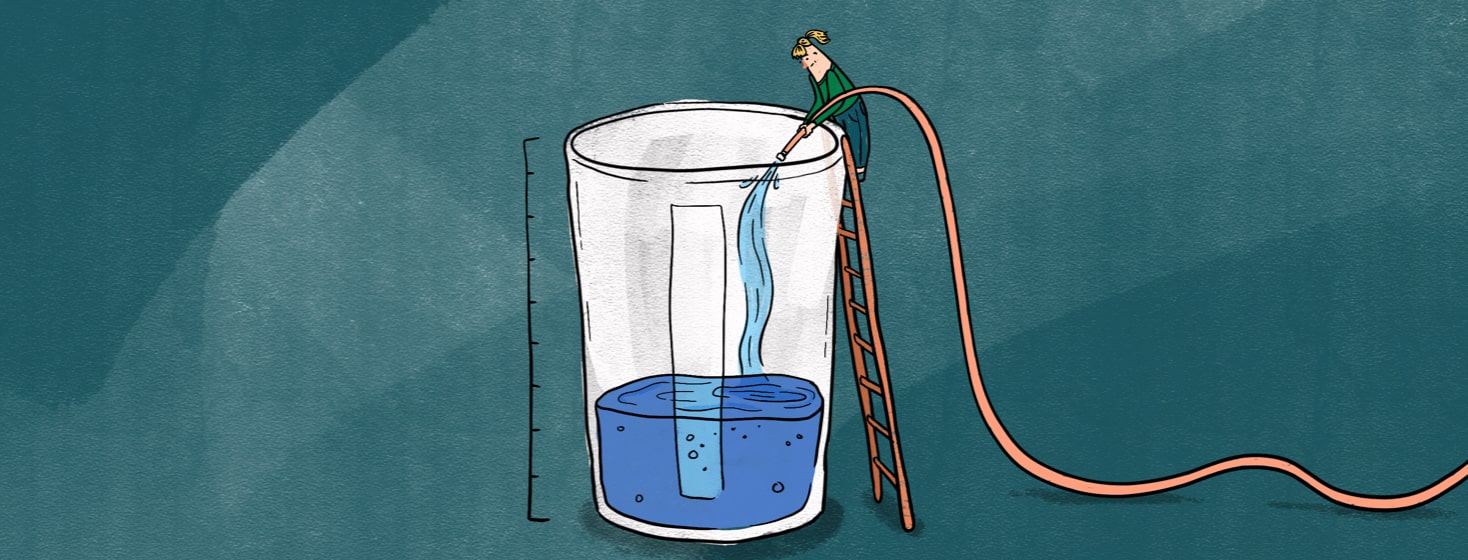Managing Your Emotions
As heart failure patients, I think it's worth thinking about ways to manage our emotions. I was told that stress can lead to health-related issues, including (but not limited to) elevated blood pressure and heart rate, decreased immunity, sleep disturbance, and changes in appetite. I have seen some of these in myself as well during periods of intense stress, although stress is a pretty fairly common emotion in our modern lives. Especially during the holiday season. :(
However, emotions can impact our energies which can impact our health as well. Positive emotions can equal positive energy! So, especially during this time of year, I think it is worthwhile to think about what fills our bucket of health and energy and what drains it!
Managing my emotions and filling my bucket with heart failure
I think that things that fill my bucket are eating with an eye towards nutrition, sleep, laughter, exercise, and positive people. I've heard good things about meditation as well. Things that drain my energy can include a lack of sleep, poor nutrition, negative people, excessive stress/anxiety, and health issues. I would also say that, at least personally, when I've done too much, and my fatigue is thus too much, this state negatively impacts my bucket of health and energy as well. Probably for most people, too much physical work takes away from their bucket as well. This is NOT saying that exercise is not important - it is important to ask your healthcare team and listen to them as far as what amount of exercise is right for you.
Some of these things we can control and others we cannot. But what can we control? Personally, I think we can control:
Quality sleep
According to the CDC, going to bed and waking up at about the same time every day is helpful, keeping the room dark, and removing electronics all help you get quality sleep. Also, regular exercise is important, which is why it's important to talk to your healthcare team about the right amount and type of exercise for you! I also find a relaxing ritual before bed helps. Personally, I stretch, but I have friends who read, shower, etc. 1
Mindfulness
A doctor told me once that I should just live in the moment, and he was right. It's hard but worth it when you have something as big as heart failure to deal with. Try to take it one day at a time and not be too focused on the future and what you can't control. I've also tried deep breathing. Going on walks and focusing on your senses helps you be very mindful of what's around you in the here and now, going back to being focused on the present. In fact, mindfulness, or mindfulness meditation, can be a good practice to help you focus on the present. I got very into it during law school, and it helped me manage the stress tremendously.
Strengthen social connections
Have you thought about trying to build a stronger relationship with your family or friends? Maybe try learning a new skill or taking a class if you are able to. Or, volunteer or join a club if you can. If you have limited energy, perhaps there is a club that you can attend one day a month or something where participants meet remotely.
I have found that having strong connections, not necessarily a lot of them, is helpful. Quality, not quantity. Interestingly enough, while my circle has shrunk, my connections have grown deeper after my heart failure diagnosis. I am not as much 'fun' as I used to be and I cannot do as much socially, but the connection that I have with my friends and sister is very real. No more fakeness and definitely no toxicity. Make the time and energy that you do have to spend with your 'circle' count. Lastly, for anyone who is a caregiver do not be afraid to ask for help.
I hope these tips are helpful when thinking about managing our emotions and finding positive energy as heart failure patients or caregivers!

Join the conversation